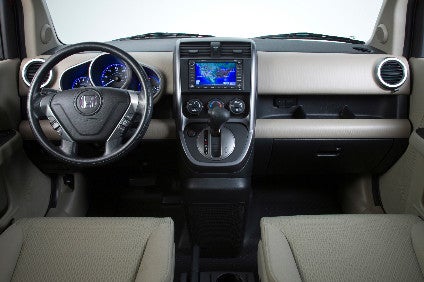
The US Department of Transportation’s National Highway Traffic Safety Administration has issued an amended order to continue the acceleration of recall repairs forms of vehicle owners affected by the Takata air bag inflator recalls.
The Amended Coordinated Remedy Order sets requirements for when automakers must have replacement parts available for customers and sets progress and completion deadlines for replacements of the defective parts which have been responsible for 11 deaths and approximately 180 injuries in the United States.

Discover B2B Marketing That Performs
Combine business intelligence and editorial excellence to reach engaged professionals across 36 leading media platforms.
“The Department of Transportation is maintaining its aggressive oversight of the efforts to recall Takata air bags as quickly as possible,” said US transportation secretary Anthony Foxx. “The amended order will speed up the availability of replacement air bags, and continues to prioritise the highest risk vehicles to protect the travelling public.”
The order issued to Takata and 19 affected automakers requires replacement parts to be obtained on an accelerated basis and made available first to the riskiest vehicles. The order sets new requirements for automakers to certify to NHTSA when they have obtained a sufficient supply of replacement parts to begin repairs, and requires automakers to coordinate consumer messaging using best practices identified by NHTSA, industry and the Independent Monitor of Takata and the Coordinated Remedy Program. This action builds on the program initiated in November 2015, incorporating the additional tens ofms of inflators recalled or scheduled for future recall since that date, most of which were included in the May 2016 recall expansion.
“NHTSA is doing everything possible to make sure that there are no more preventable injuries or deaths because of these dangerous air bag inflators,” said NHTSA administrator Mark Rosekind. “All vehicle owners should regularly check their vehicles for recalls at SaferCar.gov and go get them fixed at no cost as soon as replacement parts are available.”
There are currently 46m recalled Takata air bag inflators in 29m vehicles in the United States. Under the Amended Consent Order issued to Takata in May 2016, automakers will be required to recall additional inflators over the next three years, ultimately affecting approximately 64m to 69m inflators in 42m total recalled vehicles. Ultimately all frontal Takata inflators using non-desiccated phase-stabilised ammonium nitrate (PSAN) will be recalled.
Under the Coordinated Remedy Program, NHTSA has committed to seeking a 100% recall completion rate from the vehicle manufacturers to protect the motoring public. As of 2 December, automakers reported they have so far repaired approximately 12.5m inflators.
Before establishing the schedule for the expanded Takata inflator recalls announced in May 2016, NHTSA and its independent expert reviewed the findings of three independent research organisations into the Takata air bag ruptures and confirmed the findings on the root cause of inflator ruptures. A combination of time, environmental moisture and cycling high temperatures contribute to the degradation of the ammonium nitrate propellant in the inflators. Such degradation can cause the propellant to burn too quickly, rupturing the inflator module and sending shrapnel through the air bag and into the vehicle’s cabin.
The recall and remedy schedule mandated by NHTSA ensures that vehicles with defective air bag inflators are recalled and have replacement parts available before they present a significant risk to vehicle occupants. This is the largest and most complex safety recall in US history.
NHTSA said it had worked to increase consumer awareness of the recalls and encourage vehicle owners with open recalls to take action. The agency launched its Safe Cars Save Lives campaign in January, and conducted a five-state, 10-city bus tour — through the highest risk areas for Takata air bag ruptures — to find vehicle owners with open recalls and raise awareness of the SaferCar.gov VIN look-up tool.
The Takata recalls currently cover frontal inflators that do not include a chemical desiccant that absorbs moisture. There have been no reported ruptures of desiccated inflators due to propellant degradation. Under the Amended Coordinated Remedy Order and the May 2016 Consent Order, Takata and automakers that use desiccated PSAN inflators are required to research their safety. Absent proof that the desiccated PSAN inflators are safe, they will also be subject to recall. Takata is required to prove the safety of these inflators by the end of 2019.
Our full Takata recall coverage here






